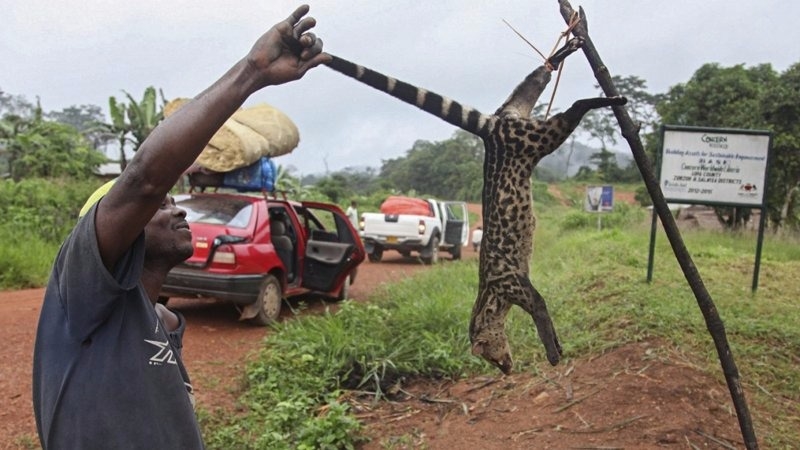
Bush meat was blamed for the Ebola outbreak - Photo: Issa Davies/IRIN
irinnews.org - by Philippa Garson
NEW YORK, 6 November 2015 (IRIN) - Climate change is having a profound impact on animal habitats, but what disease risk does this pose for humans?
Scientists estimate that almost 75 percent of new (and re-emerging) diseases affecting humans at the beginning of the 21st Century were transmitted through animals. Among these so-called “zoonotic” diseases are AIDS, SARS, H5N2 avian flu and H1N1, or swine flu.
Barbara Han, from the Cary Institute of Ecosystem Studies, describes bats, pigs, and birds as “mixing vats” for viruses like Ebola, Hendra, Nipah, avian and swine flus that can spread to humans. As wild animals lose their habitats through deforestation, they come into closer contact with domestic animals and people. Extreme weather events and a warmer climate are also disrupting animal habitats, breeding cycles, and migration patterns.
(READ COMPLETE ARTICLE)
Recent Comments